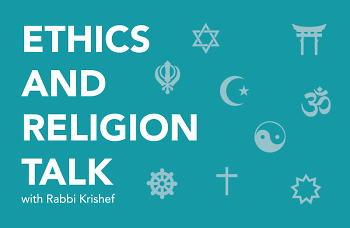The Rev. Rachel J. Bahr, pastor of Plymouth UCC, responds:
When people join Plymouth Church, each commit to following Jesus as the Center of our lives. What follows is a life lived by the ethic of LOVE. We commit to regular worship and education. We promise a regular giving of our time, talent and treasure. As part of the United Church of Christ, Plymouth Church celebrates that we are a non-credal tradition, which means our church does not require belief in certain doctrines ‘to be on the right side.’ Too many believe a list of doctrines and without a second thought will denigrate God’s beloved creation.
Father Kevin Niehoff, O.P., a Dominican priest who serves as Judicial Vicar, Diocese of Grand Rapids, responds:
The parameters of faith in the Catholic Church are known as the ‘deposit of faith.’ The ‘deposit of faith is Sacred Scripture and Tradition’ (cf. Catechism of the Catholic Church, p. 27). The Catholic Church teaches ‘the interpretation of the Word of God, either in written form or in the form of Tradition is entrusted to the teaching office of the Church alone’ (ibid.). All members of the Catholic Church participate in the Church’s mission of teaching. The bishops in communion with the successor of Peter, the Bishop of Rome, the successors to the Apostles, are entrusted interpreting the Tradition (ibid.).
Yes, the religious authorities in the Catholic Church set the parameters of belief. 'Jesus Christ, the redeemer of the world' (ibid., p. 177), is the judge.
Fred Stella, the Pracharak (Outreach Minister) for the West Michigan Hindu Temple, responds:
In Hinduism there is no creed in the way Christians would define it. Simply speaking, someone is a Hindu when they say are a Hindu. Now, it goes without saying that there are certain beliefs shared by most who self identify as Hindu. These would include the existence of God, reincarnation, final enlightenment, liberation and basic moral codes. But one can decide otherwise on any of these points and still be a member of the community. Of the various schools of Hinduism, one is called Nyaya, which operates purely by logical inference as opposed to what most might call “supernatural.”
That said, someone might take the cultural trappings of Hinduism and use them in a nefarious manner. There are missionaries in India who dress in traditional Hindu style, create worship services that resemble Hindu ceremonies and co-opt Hindu prayers in a way that Christianizes them. These people are not Hindu. There are, however, Hindus who have been exposed to the teachings of Jesus, and do venerate him as an enlightened soul as they would Buddha or Krishna. But in these cases, they still maintain their traditional theological views as outlined in the Vedas, the foundational scriptures of Hinduism.
Imam Kip Curnutt, Director of Religious Education and Associate Imam of Masjid At-Tawheed in Grand Rapids, responds:
In the Islamic tradition a distinction is made between certain and probable knowledge. Certain knowledge is that which is contained is a source text that there is no doubt in its authenticity and with a wording that has no room for differing interpretations. Probable knowledge is that with which is contained in a text that is considered authentic but not to the level of absolute certainty or whose wording is open to differing reasonable interpretations. To reject certain knowledge is to reject the faith whereas probably knowledge can be differed over.
Linda Knieriemen, Senior Pastor at First Presbyterian Church in Holland, responds:
Presbyterian theology says there is nothing we can do to ‘be on the right side’ of God. It is only because of God’s choice to love us unconditionally that we live in God’s favor. When we believe in a God like this, our response is gratitude and a desire to please God… not to gain God’ favor but because we want to! We believe that God is pleased when we do justice, love mercy, walk humbly; when we love our neighbors as ourselves; and when we believe everyone is our neighbor.
Local churches may articulate expected behaviors for their parishioners such as: regular attendance at worship, financial giving, serving in mission. But these actions are encouraged not to win God’s favor but for the spiritual growth of the individual and the community of faith.
The Reverend Colleen Squires, minister at All Souls Community Church of West Michigan, a Unitarian Universalist Congregation, responds:
In Unitarian Universalism our religious authority rests in the minds and hearts of each individual member of our faith. We get to decide what we believe; this is often very hard for non-UUs to understand. What each individual person believes is not what unifies us but how we treat one another in our community and congregation. We have 7 Principals that are meant to guide our practices, each congregation has its own set of by-laws but there is no creed or statement of faith one has to recite to be a UU in good standing.
This column answers questions of Ethics and Religion by submitting them to a multi-faith panel of spiritual leaders in the Grand Rapids area. We’d love to hear about the ordinary ethical questions that come up in the course of your day as well as any questions of religion that you’ve wondered about. Tell us how you resolved an ethical dilemma and see how members of the Ethics and Religion Talk panel would have handled the same situation. Please send your questions to [email protected].
The Rapidian, a program of the 501(c)3 nonprofit Community Media Center, relies on the community’s support to help cover the cost of training reporters and publishing content.
We need your help.
If each of our readers and content creators who values this community platform help support its creation and maintenance, The Rapidian can continue to educate and facilitate a conversation around issues for years to come.
Please support The Rapidian and make a contribution today.
